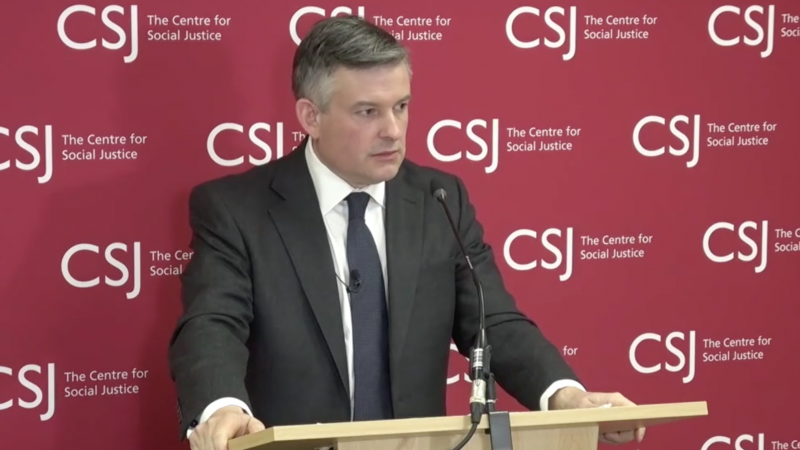
Jon Ashworth, Shadow Secretary of State for Work and Pensions, has thrown the gauntlet down on welfare reform. His ask in parliament this week? That the government introduce an “into work guarantee”. This would open a route to work for the hundreds of thousands of disabled and long-term sick people who want to find stable employment.
Ahead of the election, it is right that Labour is thinking, talking about and providing ideas for welfare reform. As MPs deliberated this week, almost nine million people were detached from the labour force, up by half a million since 2020. Long-term sickness has increased by 16% since the start of the pandemic, costing the state around £13bn more in welfare payments, according to analysis by the Centre for Social Justice (CSJ). Indeed, Britain’s is the sickest workforce among developed countries.
Many who are economically inactive may never be able to work. The welfare system should treat them with dignity, respect, and compassion. Speaking at the CSJ in January, Ashworth made this point clearly: “For people who can’t work, they deserve security with inclusion, not fear or threats.”
But there are many in this group who are crying out for the opportunity to work. At least 700,000 claimants with ‘no work requirements’ – due to caring responsibilities, physical and, increasingly, mental health conditions – say they want to work, according to official data, with even more saying they could with the right support.
The CSJ has no political affiliation, rather its core aim has always been to tackle the root causes of poverty, working closely with politicians from the main parties. Thankfully, both shadow and government ministers have answered the CSJ’s calls to provide additional personalised employment support to this often written-off group.
But this won’t be enough on its own. Because what we also know is that more than half (53%) of those keen to work are worried about engaging with support, in part over worries they wouldn’t get their benefits back should their condition unexpectedly worsen. For it to succeed, any new employment support offer must be combined with a resounding message that the authorities are on your side.
That’s why an into work guarantee would be transformational. It would operate as a cast-iron assurance that claimants taking a job could return to their original benefits without undergoing an assessment if the job didn’t work out in a set period.
It has an additional advantage. While structural reforms to work capability assessments are certainly needed, these will take many years to implement; the into work guarantee can be implemented right now (and importantly, at marginal cost).
An into work guarantee would help to address the chronic labour shortfalls that differentiate Britain from other G7 economies. Britain’s labour shortage has been said to be “the most urgent problem facing the UK economy”. Supporting more people in our country who want to work into work would be an enormous benefit not just to them but for everybody in the return of a more productive economy.
This is exactly the sort of idea that the CSJ’s cross-party social justice commission will be exploring over the next year as it travels across the UK, identifying the biggest challenges facing the most disadvantaged communities and seeking out the very best solutions for change. “It’s a big commitment to risk going off the benefits system,” Tom from Clean Slate Solutions in Middlesbrough told us, because “a new job may not work out five, six weeks later, for varying reasons because everyone is different. It should be an honest conversation.”
Keir Starmer has said he wants an end to the ‘sticking plaster politics’ that has characterised governments of recent years. To do so, the hidden cracks in the welfare system need to be addressed. Ashworth deserves commendation for putting people like Tom at the centre of welfare policy reform. The government must respond and back an into work guarantee.




More from LabourList
‘Turning public services around: Haringey’s story of child protection’
‘Can Labour turn the green tide back to red?’
Tom Belger column: ‘Why is Labour making migrant exploitation easier?’